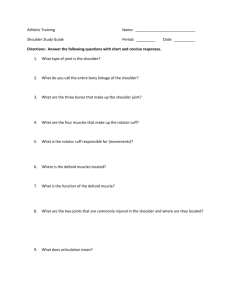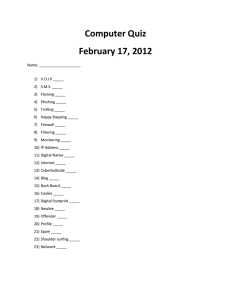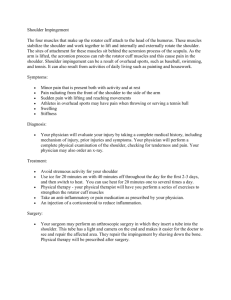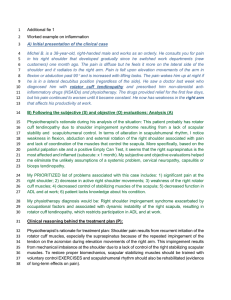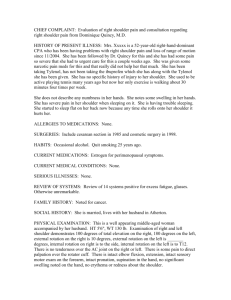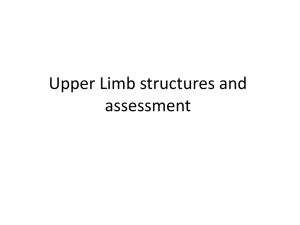Diagnosis of Shoulder problems in Primary Care: Neck Shoulder
advertisement
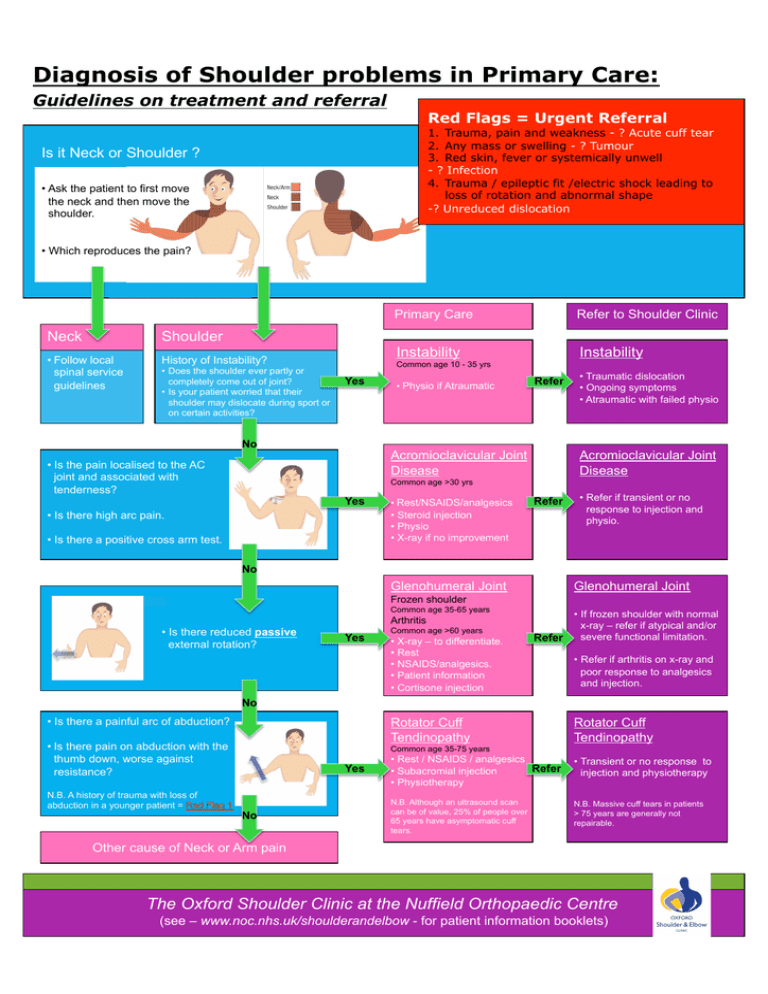
Diagnosis of Shoulder problems in Primary Care: Guidelines on treatment and referral Red Flags = Urgent Referral 1. Trauma, pain and weakness - ? Acute cuff tear 2. Any mass or swelling - ? Tumour 3. Red skin, fever or systemically unwell - ? Infection 4. Trauma / epileptic fit /electric shock leading to loss of rotation and abnormal shape - ? Unreduced dislocation Is it Neck or Shoulder ? • Ask the patient to first move the neck and then move the shoulder. • Which reproduces the pain? Neck Shoulder • Follow local spinal service guidelines History of Instability? • Does the shoulder ever partly or completely come out of joint? • Is your patient worried that their shoulder may dislocate during sport or on certain activities? Refer to Shoulder Clinic Instability Instability Common age 10 - 35 yrs Yes No • Is the pain localised to the AC joint and associated with tenderness? Primary Care • Physio if Atraumatic Refer Acromioclavicular Joint Disease • Traumatic dislocation • Ongoing symptoms • Atraumatic with failed physio Acromioclavicular Joint Disease Common age >30 yrs Yes • Rest/NSAIDS/analgesics Refer • Steroid injection • Physio • X-ray if no improvement • Is there high arc pain. • Is there a positive cross arm test. • Refer if transient or no response to injection and physio. No Glenohumeral Joint Glenohumeral Joint Frozen shoulder Common age 35-65 years Arthritis • Is there reduced passive external rotation? Yes Common age >60 years • X-ray – to differentiate. • Rest • NSAIDS/analgesics. • Patient information • Cortisone injection Refer • If frozen shoulder with normal x-ray – refer if atypical and/or severe functional limitation. • Refer if arthritis on x-ray and poor response to analgesics and injection. No • Is there a painful arc of abduction? Rotator Cuff Tendinopathy • Is there pain on abduction with the thumb down, worse against resistance? N.B. A history of trauma with loss of abduction in a younger patient = Red Flag 1 Rotator Cuff Tendinopathy Common age 35-75 years Yes No • Rest / NSAIDS / analgesics Refer • Subacromial injection • Physiotherapy • Transient or no response to injection and physiotherapy N.B. Although an ultrasound scan can be of value, 25% of people over 65 years have asymptomatic cuff tears. N.B. Massive cuff tears in patients > 75 years are generally not repairable. Other cause of Neck or Arm pain The Oxford Shoulder Clinic at the Nuffield Orthopaedic Centre (see – www.noc.nhs.uk/shoulderandelbow - for patient information booklets)
